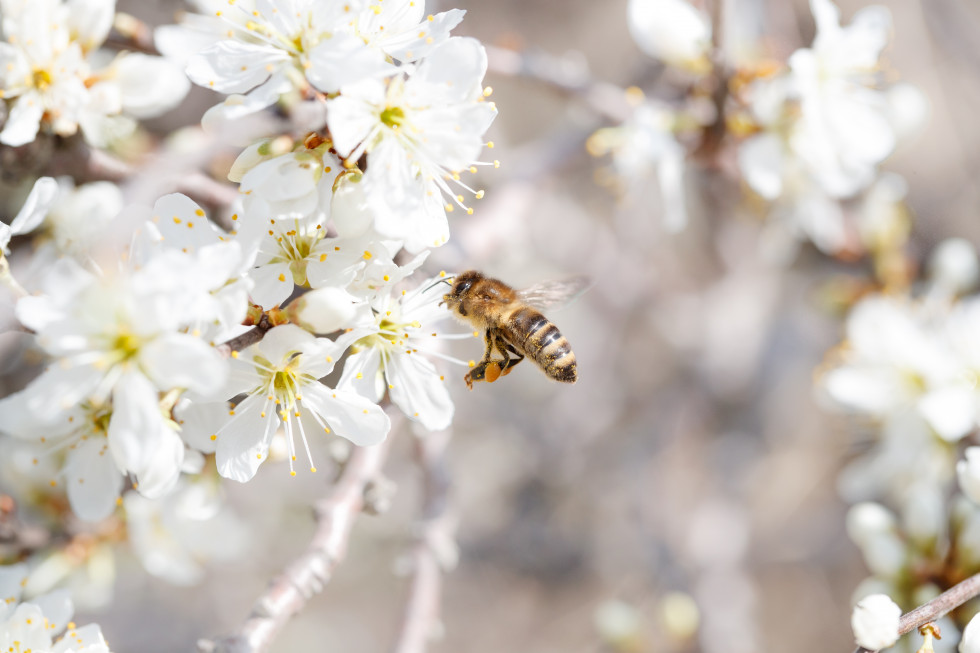20 May – when bees and other pollinators are in the global spotlight
At the initiative of the Slovenian Beekeepers’ Association, with the help of the Republic of Slovenia and the Food and Agriculture Organization of the United Nations and with broad international support, in 2017, the General Assembly of the United Nations declared 20 May World Bee Day.
This is the sixth year that bees and other pollinators are in the global spotlight for a day. On 20 December 2017, the General Assembly of the United Nations designated 20 May as World Bee Day. Slovenia’s initiative was then supported by 115 countries, and the declaration of World Bee Day is an achievement of Slovenia as a country, of several governmental and non-governmental organisations, and of diplomacy. The declaration is not only a symbolic victory and a recognition that bees are threatened, but it also represents an obligation. Awareness of the importance of protecting bees and other pollinators needs to reach everyone. This year’s celebration is also an opportunity to remind the general public that bees and other pollinators are vital to our survival on this planet.
Slovenia is very proud of its own bee, the Carniolan honey bee (Apis mellifera carnica), which is native to Slovenia and is considered one of the most widespread honey bees in the world. Its characteristics in many ways reflect the Slovenian national character, as it is an animal that is hard-working, modest and resilient and has an excellent sense of orientation. The Carniolan honey bee is protected on the basis of the Livestock Farming Act, and in its pre-accession agreement with the EU, Slovenia protected its territory as the native area of the Carniolan honey bee, committing itself to do everything possible to preserve it.
The importance and visibility of Slovenian beekeeping is also demonstrated by its inscription on UNESCO’s Representative List of the Intangible Cultural Heritage of Humanity. Beekeeping has thus become part of a rich and diverse intangible cultural heritage, uniting countries from across the world in respect for the achievements of past generations and inspiring the creativity of modern expressions and social practices. The recognition is also a thankyou to all beekeepers preserving the tradition with their way of life, passing their knowledge and skills from generation to generation and maintaining the sensitive ecological balance and sustainable development through their love of nature and bees.
World Bee Day will be celebrated with a number of events around the world. Beekeeping federations and associations, national governmental and other institutions, and global organisations are all marking the occasion. This year’s main celebration of World Bee Day at the national level will take place on Saturday 20 May in Celje as part of the Beekeeping Festival. At the international level, the Food and Agriculture Organization of the United Nations (FAO) will organise the biggest event. The hybrid event on Friday 19 May, entitled “Bee Engaged in Pollinator-Friendly Agricultural Production”, will bring together experts from all regions of the world to present different ways of beekeeping and the diversity of bees and wild pollinators. The President of the Republic of Slovenia will be the guest of honour.
As part of World Bee Day, the Golden Bee Award will be presented on 24 May at the Presidential Palace. This is the third year of the award, marking the end of the first triennium of the fields for which the Republic of Slovenia awards the prize. This year, the Golden Bee will be awarded for research into bees and other pollinators, while the prize has already been awarded for promoting and informing about the importance of bees and other pollinators and for the conservation of bees and other pollinators.
We invite you to join us in celebrating World Bee Day to draw attention to the vital role of bees and other pollinators. Now is the time to stand together and act.
More information available at:


